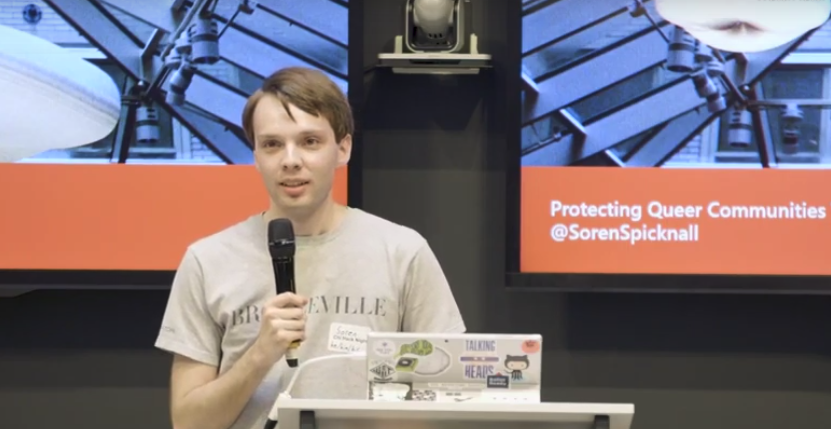Intro to being anti-racist in civic tech
Published on Mar 25, 2021 by Ryan Spencer , Derek Eder

Update: Chi Hack Night Board Members Ryan Spencer, Derek Eder and Samantha Evans gave a presentation on April 13, 2021 based on this blog post. You can watch it here:
In recognition of Chi Hack Night’s commitment to Black Lives Matter and the racial justice movement, we believe it’s important for our community to continue taking steps to address white supremacy culture. But what does it mean to be anti-racist? What is white supremacy culture and how does it show up? Over the past months, Chi Hack Night’s DEI committee has discussed and researched these questions. Now we’re sharing what we learned so that we can all work to make our communities more equitable and just.
What does it mean to be Anti-racist? What is white supremacy culture and how does it show up?
Although there is a broad acceptance amongst most of us to not be racist, there is a need to become actively anti-racist. That is why we are asking the Chi Hack Night community to reflect on how white supremacy culture permeates our personal and professional environment, as well as the larger communities in which we live.
White supremacy culture can be harmful for both people of color and white people, though how it shows up in our lives and communities can be subtle. It’s the ideology that the beliefs, norms, customs, and actions of white people are the superior standard or ‘default’ in which all society- including people of color- should be judged. This ideology becomes reinforced by our institutions, from the tech industry to medicine, education, and media. Common manifestations of white supremacy culture include perfectionism, a sense of urgency, defensiveness, and paternalism. We recommend you review the Characteristics of White Supremacy Culture and ask yourself how these traits play a role in your organization, community, and personal life. Recognizing the characteristics of white supremacy that may be present at Chi Hack Night is also an goal of the DEI committee.
Learning how to talk about cultural racism
At Chi Hack Night, part of upholding our commitment to racial equity includes providing a safe space dedicated to discussing these topics and other relevant issues with our community members. One of the major reasons why we formed our Diversity, Equity, and Inclusion (DEI) breakout was to normalize having these discussions and offer our findings as a resource for the larger civic tech community in Chicago. If topics related to DEI have never seemed pertinent to you, we ask that you commit to attending at least one DEI group meeting. Below are resources you can use to learn more about how to effectively and respectfully engage in dialogue on DEI topics.

So you want to talk about race by Ijeoma Oluo
Additional resources for further learning
- Book: So You Want to Talk About Race by Ijeoma Oluo
- Article: Racism Defined, dismantlingracism.org
- TED Talk: Let’s Get to the Root of Racial Injustice by Megan Ming Francis
- Article: White Supremacy Culture, dismantlingracism.org
What does this have to do with civic tech? What is occurring in tech equity?
The promise of civic technology is vast; however, there is still the possibility of reinforcing racial disparities via technology, even when you’re setting out with good intentions. Below are some questions to ask before building technology, starting a breakout group, or creating a new tool.
- Whom are you empowering with this technology?
- Whom does this technology potentially harm?
- What steps can you take to minimize the potential for harm?
It is important to understand the demographics of our own community and recognize who is and is disproportionately represented in civic technology circles:

Demographic survey of civic tech from the More Than Code report
Additional resources for further learning
- Report: More Than Code (see section on Demographics)
- Report: Advancing Racial Literacy in Tech, Data & Society
- Article: Machine Bias, ProPublica
- Presentation slides: The opportunity of Civic Tech, Derek Eder
Where can I find ongoing resources to stay informed and learn how I as an individual can help change the system?
White supremacy culture affects all of us….regardless of our racial background. Whether you’ve benefited from the perceived superiority or have been at the receiving end of discrimination and institutionalized racism, you’ve experienced white supremacy culture. Being actively anti-racist requires action in our personal lives and within our organizations. As we seek to understand the role that technology and the broader tech community plays in reinforcing white supremacy culture, it’s important to stay informed with up-to-date resources. This work is actively ongoing, so we will be updating the resources below to help you stay informed.

Protecting Queer Communities Through Data, Soren Spicknall
Additional resources for further learning
- Chi Hack Night Presentation: Protecting Queer Communities Through Data, Soren Spicknall
- Book: Design Justice: Community-Led Practices to Build the Worlds We Need by Sasha Costsnza-Chock by Sasha Costanza-Chock
What actions can I take today individually to promote racial equity?
- Join the Chi Hack Night Diversity, Equity and Inclusion (DEI) Breakout Group every Tuesday at Chi Hack Night
- Join Chi Hack Night’s #anti-racist-resources Slack channel
- Use the resources posted here or from other organizations to continue learning
About the authors
Ryan Spencer
Chi Hack Night Board Member
Derek Eder
President, Chi Hack Night

